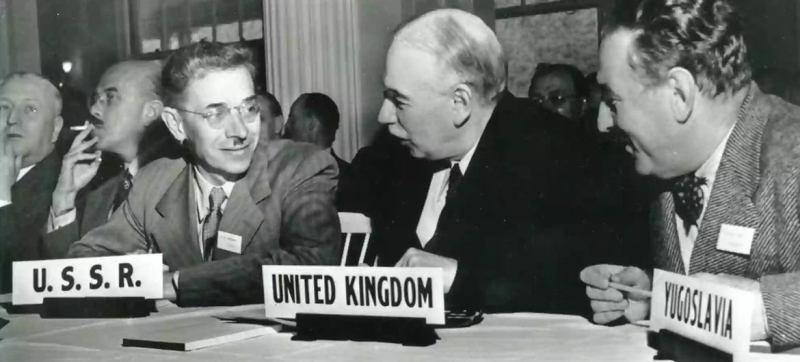Summit of the Future Explainer: Time to rethink ‘outdated and ineffective’ international financial architecture
© FAO/Luis Tato Women sell okra at a market in Tanout, Niger.
“The international financial architecture is outdated and ineffective and we are simply not equipped to take on a wide range of emerging issues,” UN Secretary-General António Guterres briefed on 12 September, as part of a global call for action to support the Summit.
The issue of sustainable development and financing for development is a core theme of the flagship event, which begins on 22 September, reflecting an urgent global situation for many poor countries facing unsustainable levels of debt that are crippling key areas for development, such as social protection and health care.
Targets missed
The need for reform has been given added urgency by the rapidly approaching deadline to achieve the Sustainable Development Goals which make up the 2030 Agenda for Sustainable Development, created to set out measurable targets for building a better future by the end of the decade.
The Goals were adopted by UN Member States in 2015, which means that in 2023 the halfway point was reached. The milestone was marked at last September’s SDG Summit, which was designed to give the Goals a much-needed shot in the arm, at a time when official UN statistics showed that only 15 per cent of the Goals had been met.
© US National Archives Bretton Woods Conference delegates, July 1944.
A new Bretton Woods?
In his policy brief on the subject, published in May 2023, the UN chief lays out proposals that could enable countries to pull their citizens out of poverty and reach their full potential, and calls for a “new Bretton Woods moment”, a reference to the groundbreaking post-World War Two international agreement that led to the creation of the International Monetary Fund (IMF) and the World Bank, organizations which decide how, and under which conditions, to lend money to countries in need of financial assistance.
The context in which the IMF and World Bank were created is practically unrecognizable from today’s political and economic environment. For a start, only 44 delegations were present, compared to the current IMF membership of 190 nations. Yet developed countries continue to wield veto powers and outsized voting rights, while developing countries remain under-represented.
The system, says Mr. Guterres, is now “entirely unfit for purpose in a world characterized by unrelenting climate change, increasing systemic risks, extreme inequality, entrenched gender bias, highly integrated financial markets vulnerable to cross-border contagion, and dramatic demographic, technological, economic and geopolitical changes.”
The answers, according to the UN chief, involve ramping up financing to eradicate poverty and support sustainability, making the main decision-making bodies of the IMF and World Bank more democratic and representative, and creating a new, overarching, body to coordinate global economic decisions, with the power to act as an “Economic Security Council”.

WHO/Diego Rodriguez Everyone has the right to a healthy environment, free of pollution and its harmful consequences.
A Pact and a pledge
The proposals contained within the policy brief, and the pledges made at last year’s SDG Summit, form the basis of a series of discussions due to be held at the Summit of the Future, a landmark conference taking place at UN Headquarters in late September.
They will also be reflected in the Pact for the Future, a document that will be adopted by UN Member States at the Summit and which represents, according to António Guterres, a pledge by all countries to “use all the tools at your disposal at the global level to solve problems – before those problems overwhelm us.”
In the Pact, signatory nations commit to taking “bold actions” to implement the 2030 Agenda for Sustainable Development, with a particular emphasis on ending hunger and poverty; reduce inequalities; and enhance ambition to address climate change.
The Summit will build momentum towards the International Conference on Financing for Development (Ffd4), due to be held in Spain in June 2025.




Comments are closed.